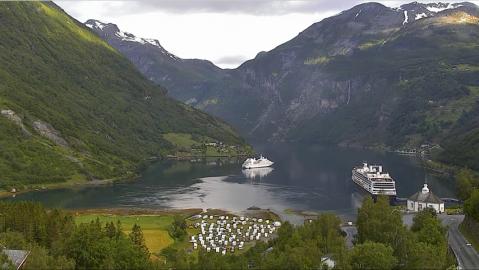The history of Europe concerns itself with the discovery and collection, the study, organization and presentation and the interpretation of past events and affairs of the people of Europe since the beginning of written records. During the Neolithic era and the time of the Indo-European migrations, Europe saw human inflows from east and southeast and subsequent important cultural and material exchange. The period known as classical antiquity began with the emergence of the city-states of ancient Greece. Later, the Roman Empire came to dominate the entire Mediterranean basin. The fall of the Roman Empire in AD 476 traditionally marks the start of the Middle Ages. Beginning in the 14th century a Renaissance of knowledge challenged traditional doctrines in science and theology. Simultaneously, the Protestant Reformation set up Protestant churches primarily in Germany, Scandinavia and England. After 1800, the Industrial Revolution brought prosperity to Britain and Western Europe. The main European powers set up colonies in most of the Americas and Africa, and parts of Asia. In the 20th century, World War I and World War II resulted in massive numbers of deaths. The Cold War dominated European geo-politics from 1947 to 1989. After the fall of the Iron Curtain, European countries grew closer together.
Overview
During the Neolithic era and the time of the Indo-European migrations Europe saw massive migrations from east and southeast which also brought agriculture, new technologies, and the Indo-European languages, primarily through the areas of the Balkan peninsula and the Black sea region.
Some of the best-known civilizations of the late prehistoric Europe were the Minoan and the Mycenaean, which flourished during the Bronze Age until they collapsed in a short period of time around 1200 BC.
The period known as classical antiquity began with the emergence of the city-states of Ancient Greece. After ultimately checking the Persian advance in Europe through the Greco-Persian Wars in the 5th century BC, Greek influence reached its zenith under the expansive empire of Alexander the Great, spreading throughout Asia, Africa, and other parts of Europe.
The Thracians, their powerful Odrysian kingdom, distinct culture and architecture were long present in Southeast Europe.
Overview
During the Neolithic era and the time of the Indo-European migrations Europe saw massive migrations from east and southeast which also brought agriculture, new technologies, and the Indo-European languages, primarily through the areas of the Balkan peninsula and the Black sea region.
Some of the best-known civilizations of the late prehistoric Europe were the Minoan and the Mycenaean, which flourished during the Bronze Age until they collapsed in a short period of time around 1200 BC.
The period known as classical antiquity began with the emergence of the city-states of Ancient Greece. After ultimately checking the Persian advance in Europe through the Greco-Persian Wars in the 5th century BC, Greek influence reached its zenith under the expansive empire of Alexander the Great, spreading throughout Asia, Africa, and other parts of Europe.
The Thracians, their powerful Odrysian kingdom, distinct culture and architecture were long present in Southeast Europe.
- Category
- ATLANTIC ROAD
Commenting disabled.














